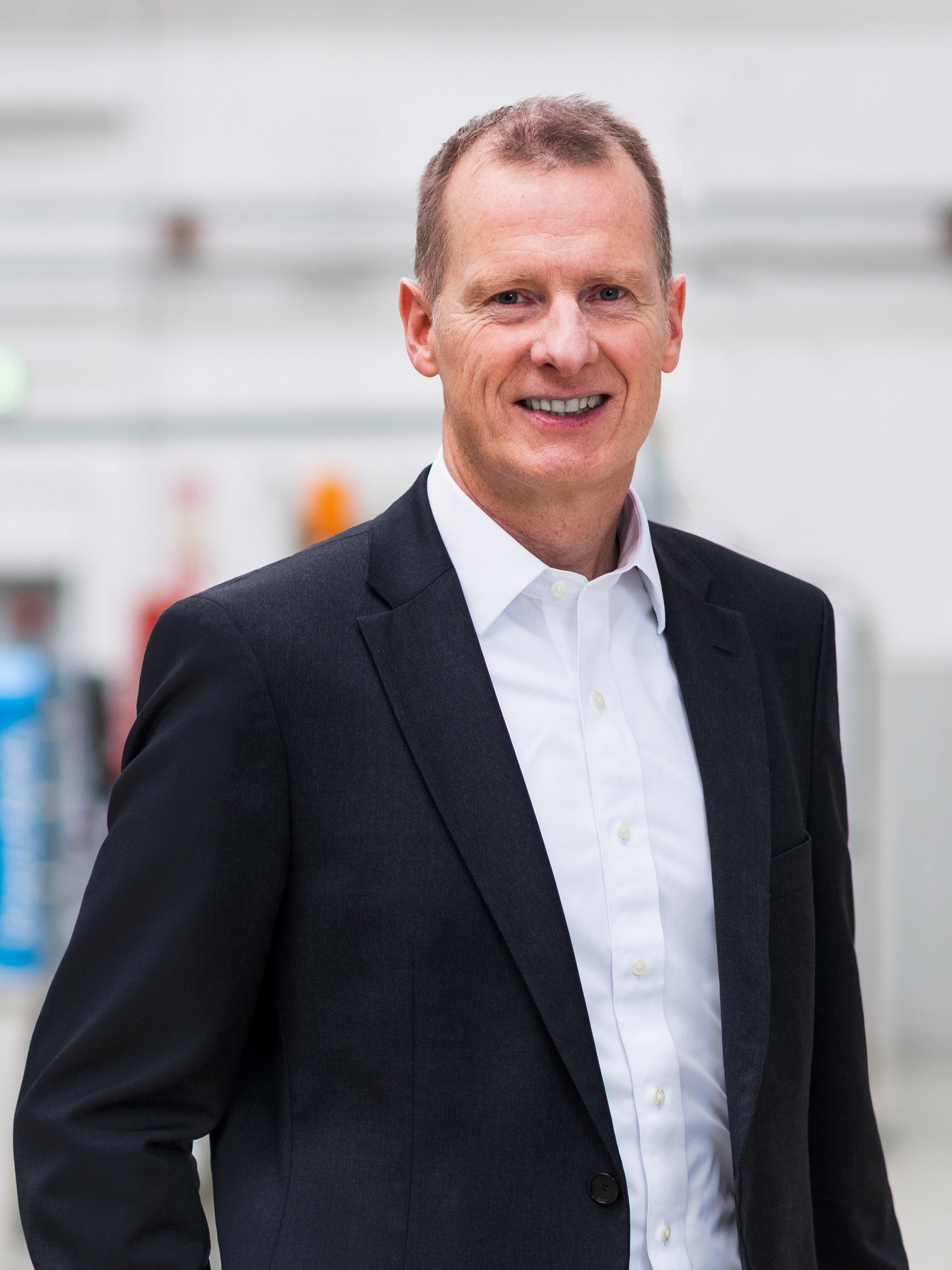
„Accountability is the best argument“
• High-quality processing of recyclate favours circular economy
• Plastic waste needs to be valued
• Political conditions are just as useful as private business initiatives
How can a machine manufacturer such as KraussMaffei contribute to the circular economy?
Dr. Michael Ruf: Our daily business is to bring plastics in a recycle material loop, or to keep them there and thus make a contribution towards avoidance of plastic waste. We consider ourselves as a company which can help improve the effects of the waste problem. We have been researching for decades on this sector and are developing recycling solutions. We will be demonstrating at the K how recyclates can be processed to high value and can be re-used. We call this upcycling.
How does that work?
Dr. Ruf: The basic principle of upcycling consists of making plastics recyclates a higher value product. In extrusion, additives, for instance aromatics, can be added to them. Matter can also be extracted. We can thus transform a recyclate which doesn’t smell good into one which smells like normal base material. We will show at K 2019 how a foam, decorated A-pillar for a car is created.
Are customers enquiring more about such solutions?
Dr. Ruf: We notice that there is even a very great demand. Until now, it was mainly inferior products which were made from recyclate. In order to keep recyclate available for other product groups, it is necessary that they are of good quality.
Is this upcycling an expensive process?
Dr. Ruf: It is a high-tech process and that isn’t free of cost. But we need this process so that we can deal with the large quantities of plastics which are no longer used. After all, there are even political requirements to increase the share of recyclate or recyclability, something, by the way, for which we are very grateful.
Is there a need for regulations to implement circular economy?
Dr. Ruf: Regulations are one way. Politics define recycling quotas and increase them step by step. This generates pressure. But there’s another way. Another way is to emphasise the value of plastics and also that of plastic waste. That works, for example, via deposit systems. An empty PET bottle acquires this way a value. In some countries it is even sometimes more valuable than the content. If this is the case, it is also collected. Collection systems can be introduced by political action.
In Germany there are already collection systems and recycling. In other locations often not. How is it, for example in China, the country of your main shareholder ChemChina?
Dr. Ruf: China is the most densely populated country in the world. Efforts towards environmental protection and the circular economy are visibly increasing. China started an official collecting system in the middle of this year. They are certainly very clear about the necessity of a sustainable economy. ChemChina is immensely active in investigating solutions. We are also working together on projects and bringing our expertise into them.
What concrete action can you as KraussMaffei take?
Dr. Ruf: We can supply exactly those machines which make new products from collected plastics. We thus supply technology tailored exactly according to the requirements of the markets in order to facilitate there a circular economy. These machines need not be as complex as our premium products, but they are certainly just as effective. That is what we sell and manufacture in China. And that is what can be done just as well in other markets such as south-east Asia or in South America.
How much help do you give networked production systems with circular economy?
Dr. Ruf: We network the skills of extrusion, injection moulding, and our new sector Digital & Service Solutions under the heading Circular Economy. This means the entire cycle can be digitally followed, for example for recording melting temperatures, printing and screw speed during extrusion. We thus enhance the entire quality control and at the same time also the efficiency.
What is from your view the best argument for a circular economy for plastics?
Dr. Ruf: It is accountability. We, as a company, wish to make a contribution. And we can do that. With our technical know-how we help, for example with the manufacture from recyclates of high-quality, vital plastics products in medical technology or in the food sector. We engage in this because we are convinced that thereby we can make a contribution in eliminating one or the causes of this global problem.
—————–
In our world, plastics are indispensable. The downside is the littering. Carelessly discarded plastics products condense to form thick carpets, not just on rivers and seas, but also on land. A complete circular economy could prevent this evil and put the focus back on the benefits of plastics. In order for this to be a success, we all need to work together: processors, raw material manufacturers, mechanical engineers and recyclers, but also brand owners, end consumers and politicians.
VDMA will shine the spotlight on circular economy at the leading K 2019 trade fair in Düsseldorf in October and show how closed loops can work effectively. Throughout the process, stakeholders will be having their say in a series of interviews in the run-up to this international industry event.

About VDMA Plastics and Rubber Machinery
More than 230 companies are members of the association, covering more than 90 percent of the industry’s production activities in Germany. Ten percent of our member companies come from Austria, Switzerland and France. The German member companies represent sales of EUR 7 billion in core machinery and EUR 10 billion including peripheral technology. Every fourth plastics machine produced in the world comes from Germany; the export rate is 70 percent. Ulrich Reifenhäuser, Member of the Management Board of the Reifenhäuser Group, is the chairman of the association.